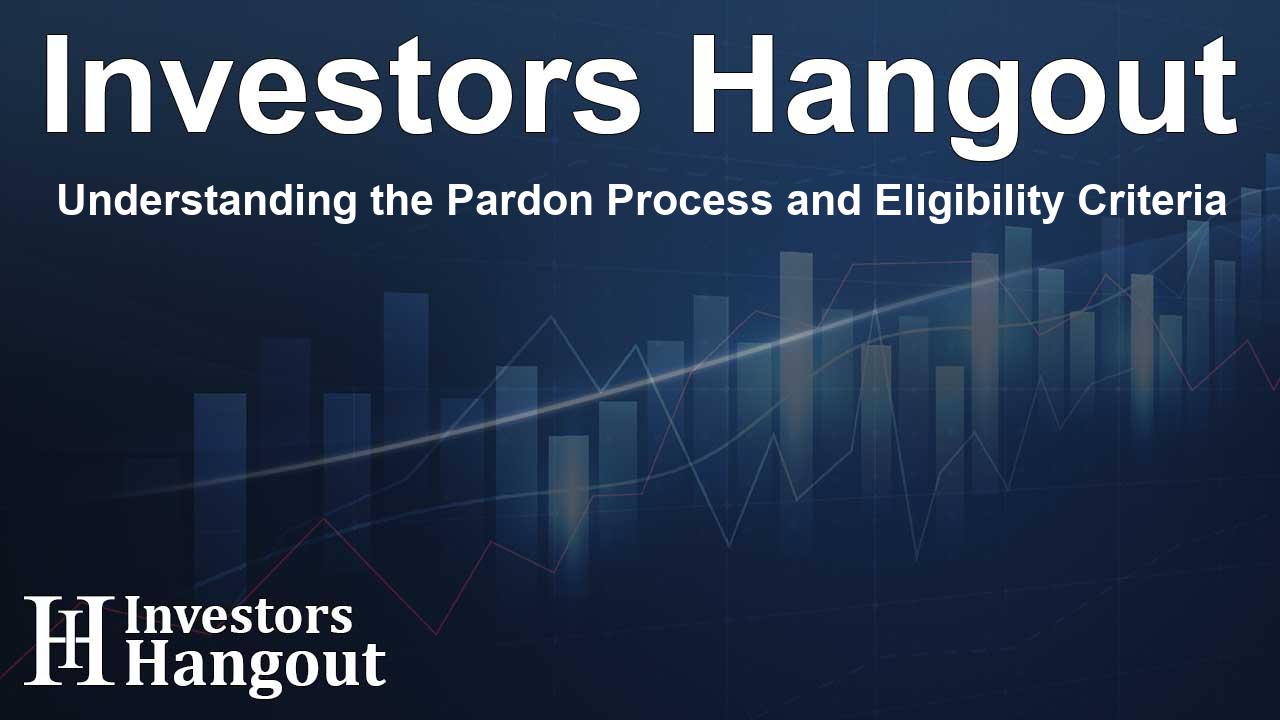Understanding the Pardon Process and Eligibility Criteria

What Is a Pardon?
A pardon is a significant act of clemency that forgives a criminal conviction, allowing individuals to move on from their past. Instead of erasing a conviction or implying innocence, it acknowledges that the best course of action for public welfare is to forgive the offense. This act can be granted at both the state and federal levels, depending on the legal framework in place.
The Presidential Role in Pardons
At the federal level, the President of the United States has the exclusive authority to grant pardons for federal offenses, as articulated in the United States Constitution. Although the Office of the Pardon Attorney, part of the Department of Justice, reviews applications and offers recommendations, the ultimate decision rests with the President, who can also grant pardons outside of the established process. For state offenses, governors are typically empowered to issue pardons, following the guidelines set forth in state constitutions.
Types of Pardons
Pardons come in various forms, ranging from sentence commutations, which permit early release while retaining the conviction, to full pardons that can restore an individual’s civil rights and lift various legal or financial penalties. Understanding these distinctions is crucial for individuals contemplating the application process.
Eligibility to Apply for a Pardon
Individuals convicted of crimes, whether minor or significant, may be eligible to apply for pardons. However, different criteria exist at federal and state levels regarding how applications are evaluated and the types of relief that may be granted. It’s essential to understand that while anyone can apply for a pardon, the outcome will depend on specific eligibility criteria that differ based on the nature of the offense.
Key Limitations in the Pardon Process
Several critical limitations must be considered when applying for a pardon. These include:
- Pardons cannot be granted pre-conviction.
- Municipal violations may not be eligible for state pardons.
- In various jurisdictions, individuals may face restrictions on being pardoned multiple times for the same offense.
The Application Process and What to Expect
Applying for a pardon requires careful preparation and strategy. Legal representation is not mandatory, yet having a knowledgeable criminal defense lawyer greatly increases the likelihood of a successful application. At the federal level, applications are directed to the Office of the Pardon Attorney, whereas state-level applications often require petitions to the governor’s office or a related clemency board.
Reapplying After a Denial
If your initial application is denied, you can reapply without a mandatory waiting period at the federal level. It is vital, however, to incorporate any significant changes in your circumstances when submitting a follow-up application.
Understanding the Consequences of a Pardon
It’s crucial to note that a presidential pardon does not expunge your criminal record. Instead, it serves as an official forgiveness of the offense while leaving the conviction intact. Both the conviction and the pardon may appear on background checks, necessitating individuals seeking expungement to pursue routes within the judicial system, separate from the clemency process.
Conclusion
Each case is unique, and navigating the complexities of criminal law can be daunting. Consultation with a skilled criminal defense attorney is invaluable in pursuing a pardon application. Having an experienced advocate will ensure that you are prepared with the necessary documentation and that your case is presented strategically to maximize the chances of a successful outcome.
Request a Free Consultation
If you or someone you know requires legal assistance, the McConnell Law Firm offers free consultations. Reach out to us at (316) 243-5903 to discuss your situation with an experienced criminal defense attorney.
Frequently Asked Questions
Do I need an attorney to apply for a pardon?
While legal representation is not mandatory, it is highly recommended to enhance your chances of a successful application.
What is the procedure for applying for a pardon?
Application procedures differ between federal and state systems, generally involving submissions to respective offices or boards.
If my application is denied, am I able to reapply?
Yes, you can reapply, with no federal waiting period, but it’s important to showcase any changes or improvements since the last submission.
Does a pardon eliminate my criminal record?
No; while a pardon forgives the offense, it doesn't remove the conviction from your record.
What should I do if I have been charged with a crime?
It's crucial to contact a qualified criminal defense attorney promptly to understand your rights and options.
About The Author
Contact Thomas Cooper privately here. Or send an email with ATTN: Thomas Cooper as the subject to contact@investorshangout.com.
About Investors Hangout
Investors Hangout is a leading online stock forum for financial discussion and learning, offering a wide range of free tools and resources. It draws in traders of all levels, who exchange market knowledge, investigate trading tactics, and keep an eye on industry developments in real time. Featuring financial articles, stock message boards, quotes, charts, company profiles, and live news updates. Through cooperative learning and a wealth of informational resources, it helps users from novices creating their first portfolios to experts honing their techniques. Join Investors Hangout today: https://investorshangout.com/
The content of this article is based on factual, publicly available information and does not represent legal, financial, or investment advice. Investors Hangout does not offer financial advice, and the author is not a licensed financial advisor. Consult a qualified advisor before making any financial or investment decisions based on this article. This article should not be considered advice to purchase, sell, or hold any securities or other investments. If any of the material provided here is inaccurate, please contact us for corrections.
